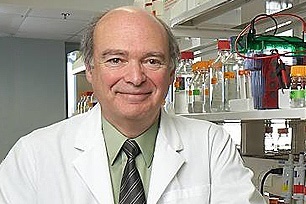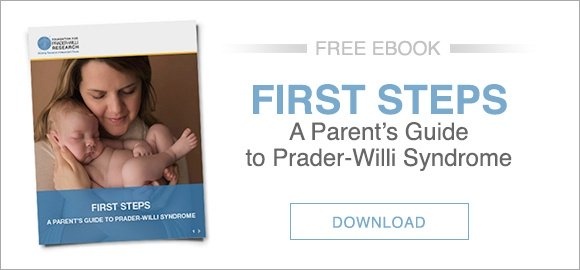 All individuals with Prader-Willi syndrome (PWS) have at least one copy of the PWS region from their mother, but it is turned off through a normal biological process called genomic imprinting. Normally, the chromosome 15 that is inherited from the father has this set of genes switched on while the same set of genes on the chromosome 15 inherited from the mother is switched off. The paternal copy is missing and patients only have the switched off copies that came from the mother’s chromosome 15. Researchers are working on ways of reactivating the silenced PWS gene from the mother as a potential therapy for PWS.
All individuals with Prader-Willi syndrome (PWS) have at least one copy of the PWS region from their mother, but it is turned off through a normal biological process called genomic imprinting. Normally, the chromosome 15 that is inherited from the father has this set of genes switched on while the same set of genes on the chromosome 15 inherited from the mother is switched off. The paternal copy is missing and patients only have the switched off copies that came from the mother’s chromosome 15. Researchers are working on ways of reactivating the silenced PWS gene from the mother as a potential therapy for PWS.
One group, Dr. Marc Lalande's team at the University of Connecticut, has identified a component of the switch off mechanism. With support from FPWR, Dr. Lalande's group has characterized the role of a protein called ZNF274 in silencing the PWS region on the maternal chromosome. They have demonstrated that disrupting ZNF274 in iPS cells reactivates the PWS genes on the maternal chromosome. This is a very promising proof of concept, however, ZNF274 also regulates other non-PWS genes and so interfering with ZNF274 can cause a wide range of unintended and unwanted effects as well.
With continued funding, Dr. Lalande group will now extend their work to develop a method that more specifically disrupts the interaction of ZNF274 at just the PWS region of the chromosome and doesn't interfere with ZNF274 interactions with other regions of DNA. The project is titled "Therapeutic Potential of Blocking Zincfinger Protein 274 Binding To the PWS Locus." This work is a critical step to advancing a potential targeted therapy that would only turn on the silenced PWS genes without disrupting other non–PWS genes and causing off-target side effects.
Dr. Lalande has been an active member of the PWS research community and his group developed the first iPS cells for PWS, a critical tool for the advancement of PWS research. He has attended and presented at numerous FPWR conferences and even took the ice bucket challenge in honor of FPWR (watch the video)!








